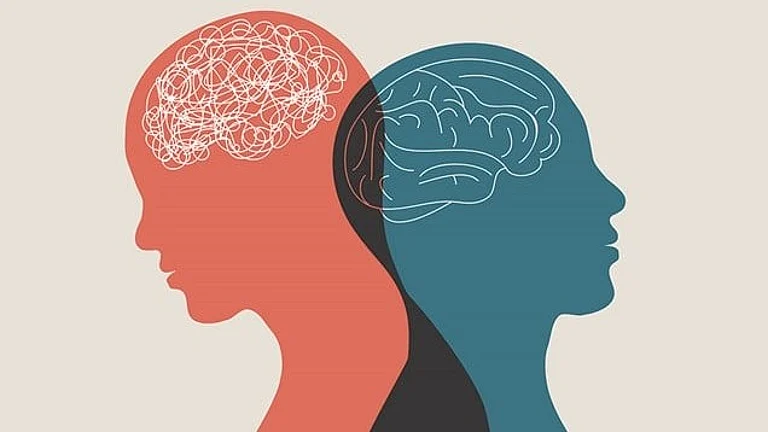High levels of inequality are undermining both national and global capacities to prevent and respond to pandemics, rendering outbreaks more disruptive, deadly, and prolonged, pushing more people into poverty, a new report released by UNAIDS on Monday has warned.
The two-year study titled, "Breaking the Inequality–Pandemic Cycle: Building True Health Security in a Global Age” reveals what experts describe as a “self-reinforcing inequality–pandemic cycle.”
It has been prepared by the Global Council on Inequality, AIDS and Pandemics, a high-level body convened by UNAIDS and co-chaired by Nobel Laureate Joseph E. Stiglitz, former First Lady of Namibia Monica Geingos, and public health expert Professor Sir Michael Marmot.
According to the findings, deep economic and social inequalities within and between countries increase vulnerability to infectious diseases. In turn, pandemics exacerbate these disparities, titled, "Breaking the Inequality–Pandemic Cycle: Building True Health Security in a Global Age” while the wealthiest accumulate greater gains.
“Inequality drives pandemics, and pandemics deepen inequality, making future crises more likely and more damaging,” the report notes.
Within countries, inequality in income, housing, education, and healthcare access was directly correlated with higher mortality during Covid-19 and higher rates of HIV infection. For example, people living in informal settlements across several African cities showed significantly higher HIV prevalence, reflecting intertwined disadvantages in income, employment, and housing.
The report highlights how global financial and technological disparities intensify the world’s collective vulnerability.
During Covid-19, high-income countries spent four times more than low-income nations to cushion pandemic shocks. Many developing countries, the report warns, are now burdened with USD3 trillion in debt, leaving them unable to invest in health systems or social protection.
“The world’s richest increased their wealth by more than a quarter during Covid-19, while 165 million people were pushed into poverty,” the report states, adding that austerity-driven recovery strategies have left societies “less resilient and more disease-prone.”
The Council urged governments and international financial institutions to adopt an “inequality-informed” pandemic preparedness framework that focuses on the social determinants of health, such as decent housing, fair wages, education, and social protection.
“The evidence is unequivocal,” said Professor Michael Marmot, Director of University College London’s Institute of Health Equity. “If we reduce inequalities — through decent housing, fair work, quality education, and social protection — we reduce pandemic risk at its roots.”
UNAIDS Executive Director Winnie Byanyima echoed the call for urgent reforms including “Reducing inequalities within and between countries will enable a better, fairer, and safer life for everyone.”
The report outlines four key recommendations aimed at breaking what it terms the “inequality–pandemic cycle.” It calls for expanding fiscal capacity by removing financial barriers that limit countries’ ability to respond to health crises.
This includes an urgent debt repayment standstill for distressed nations until 2030 and new International Monetary Fund (IMF) mechanisms designed to prevent austerity-driven measures during pandemics.
The report further stresses the need to invest in the social determinants of health — such as housing, education, and social protection — to reduce inequalities and strengthen societal resilience, particularly among vulnerable populations.
It also recommends reforming global research and development frameworks to ensure pandemic-related technologies are treated as public goods, with automatic waivers on intellectual property rights during global health emergencies.
Finally, it urges governments to build community-led pandemic infrastructure by integrating local organisations and rights groups into preparedness and response systems, thereby improving trust, equity, and efficiency in future health emergencies.
The findings come as G20 Health Ministers convene amid emerging outbreaks of avian flu and mpox, and as new long-acting HIV prevention drugs enter regulatory approval stages.
The report’s release also coincides with the culmination of South Africa’s G20 presidency, whose agenda emphasises “Solidarity, Equality, and Sustainability.”
“Pandemics are not only health crises but also economic and social crises,” said Professor Stiglitz. “When recovery is financed through debt and austerity, it deepens inequality and weakens the very systems that protect public health.”
The report concludes that existing pandemic preparedness efforts, narrowly focused on biomedical solutions, remain inadequate. A comprehensive approach that integrates fiscal reform, social justice, and equitable access to health technology is essential, it argues.
“Inequality is not inevitable,” said Monica Geingos. “It is a political choice — and a dangerous one that threatens everyone’s health.”























